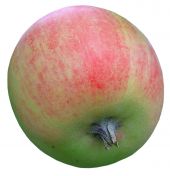Shopping behavior
Reasons to change
Many manual workers in developing countries suffer from a lack of social standards at their working places which means very low income, inhumane working conditions, lack of labor rights and also child labor is a brutal reality in many countries of the Global South. We are consuming many products from developing countries on a daily basis. Whether these products have been produced in a fair manner or with exploitation of both workers and nature makes a big difference to the lives of people in developing countries. It is our choice as consumers to make this difference. And it is an easy choice that does not require a lot of long term commitment by the customer. Therefore, we can reach many different groups in society with this approach that so far has only a few connections to development topics - such as YMPs. So one important topic of development education by NGOs is to promote a change in the minds of our target groups about the products that they buy.
Some options for change that fit Young Modern Performers
First, we can make YMPs aware of what products are critical in regard to social standards. Many different products that we use on a regular basis are affected by the problem. In the very best sense of lifestyle education for development, we do not only raise awareness of the problem of social standards in production and background in development countries, but we also want to promote, at the same time, concrete options for changing consumption. Some examples of what we can suggest to YMPs in terms of shopping behavior:
Whenever possible buying fair traded products.
 © SXC - Photo by Ali TaylorFair trade products guarantee that social standards have been complied with along the whole chain of production. This is possible for agricultural products that are produced in developing countries like coffee, tea, sugar, cacao, chocolate, bananas, mangos, and flowers. But it is also possible for clothes and textiles, and jewelry and other handcraft products. www.fairtrade.net
© SXC - Photo by Ali TaylorFair trade products guarantee that social standards have been complied with along the whole chain of production. This is possible for agricultural products that are produced in developing countries like coffee, tea, sugar, cacao, chocolate, bananas, mangos, and flowers. But it is also possible for clothes and textiles, and jewelry and other handcraft products. www.fairtrade.net
When there is nothing fair trade available, buying products with social certification like, for example, carpets, sport textiles, natural stones and many more.
Products as these comply with at least certain basic standards of decent working conditions like prohibition of child labor or guaranteeing payment according to national legislation
Buying regional product
 © SXC - Photo by Michal Zacharzewski;
© SXC - Photo by Michal Zacharzewski;
Buying “slow food”, regional products supports regional markets and also favors environmental sustainability. This way, negative side effects of global trade are hindered such as competition of wages between countries for the cheapest loans, loss of jobs due to unfair trade, and CO 2 emissions for overseas transport. Buying regional is possible for many products such as vegetables, fish, meat, and other food but also for handcraft articles, leather products, wooden products, and many other goods. www.slowfood.com
Sustainable products
When neither fair trade or certified products are available buying sustainable, ecological and long-lasting products.
Producing only to be the cheapest competitor on the market leads in many branches to dumping of loans, exploitation of the workforce, child labor and insecure labor conditions, or lack of protection of the environment in production processes. In addition resources in production such as metal, plastics, water, and chemicals are invested to build a product for one time or limited time use and then often go to waste.
Buying long-lasting products is, of course, no guarantee that social standards have been observed during production. But with sustainable products there is at least less consumption of critical products as they are longer in use.
Critical reflection on the sustainability of products covers almost every aspect of consumption www.goodguide.com from shopping bags, furniture, kitchen inventory, and paper usage up to IT-products like TVs, cell phones, laptops, computers, and printers. www.climatesaverscomputing.org
How to put the message for Young Modern Performers?
 © SXC-Photo by LNSo these are options to change shopping behavior and consumption patterns. But what and how to tell YMPs about it?
© SXC-Photo by LNSo these are options to change shopping behavior and consumption patterns. But what and how to tell YMPs about it?
Promoting concrete information
Having in mind that many YMPs are not interested in joining organizations of the fair trade movement or in otherwise being activists, it is rather useless for them to know about organizations, origin, and overall goals of fair trade or the sustainability movement in general. They will be most interested in what they can do very practically and by themselves. So they need concrete information about sustainable products, where to buy them, and what the benefits are. Rather than talking about the overall higher good of fair trade we as NGOs can motivate our target group about a single activity to support fair trade.
For example:
- sensitize them about IT trash at their workplaces
- motivate them to order a fair trade coffee at a bar
- invite them to a clothes-swapping party
- let them know what labels to look for when going shopping
These practical hints are important so that it becomes immediately clear to the YMP what can be done. Even better is to place the educational information on lifestyle change at places where it takes place. In this case maybe a bar that offers fair trade coffee or a shopping street where there are shops that offer ecological fashion. This way the bridge between “I know” and “I do” is closed as best possible.
Promoting quality of products
To maximize our output to this target group we found it very helpful to phrase our messages not as a demand to the target group in the way of “you should buy fair trade”, but “fair trade products are high quality and a pleasure to taste/use”. Sustainable products are to be promoted as quality and exclusive alternatives in the very first line and only in the second line to be promoted as beneficial in some way to society.
LIFESTYLE EDUCATION FOR DEVELOPMENT
 © SXC - Photo by Lotus Head
© SXC - Photo by Lotus Head
